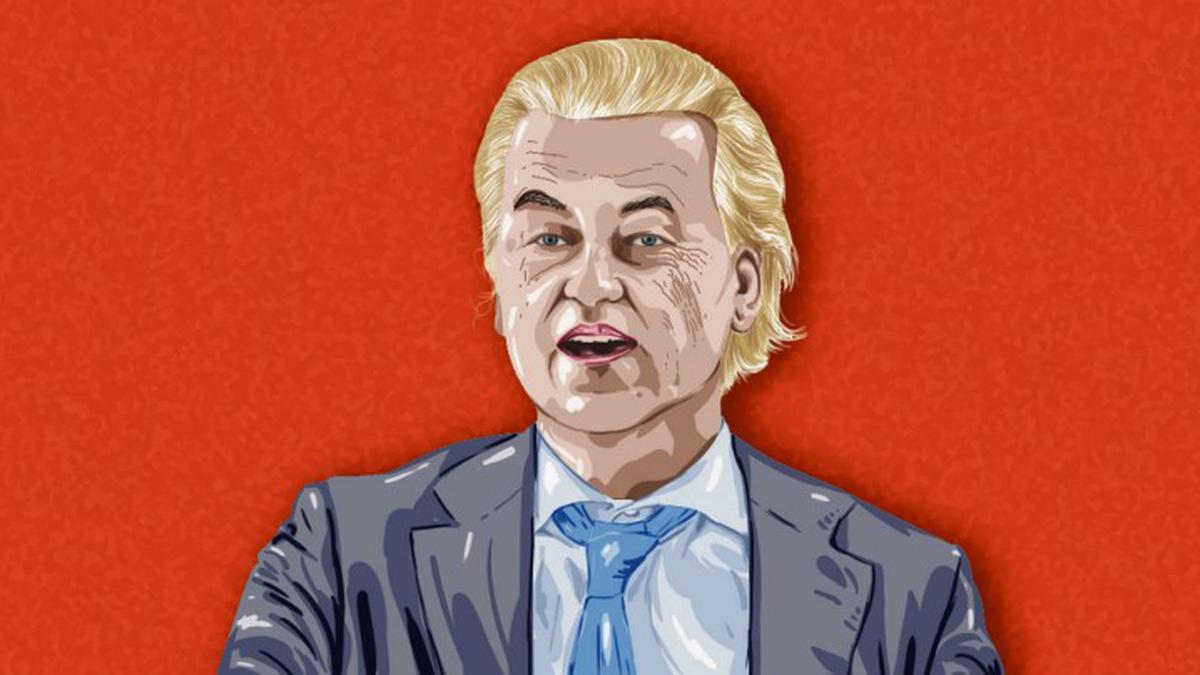
Geert Wilders | Out of the wilderness Premium
The Hindu
In a development that has sent shockwaves across the Europe, Geert Wilders, a far-right politician known as the ‘Dutch Donald Trump’, has led his Party for Freedom (PVV) to victory in the general elections held on November 22.
In a development that has sent shockwaves across the Europe, Geert Wilders, a far-right politician known as the ‘Dutch Donald Trump’, has led his Party for Freedom (PVV) to victory in the general elections held on November 22. Exceeding all expectations, the PVV won 37 seats out of 150 — more than double its tally in the previous elections. In second place was the centre-left Labour/Green coalition with 25 seats, while the centre-right People’s Party for Freedom and Democracy (VVD) of outgoing Prime Minister Mark Rutte could muster only 24 seats. The other major winner, with 20 seats, was the conservative National Social Contract (NSC), a new party started in August 2023 by Peter Omtzigt.
The Netherlands has a highly fragmented, multi-party system where no single party wins a clear majority. Typically, the party that wins the largest number of seats attempts to form a coalition government. Mr. Rutte had been Prime Minister since 2010. But his coalition collapsed in July 2023 following a series of setbacks. His government had been under fire from farmers opposed to its nitrogen bill, which sought to limit human impact on the nitrogen cycle. They even started a party, the Farmer-Citizen Movement (BBB), which swept the provincial elections in March 2023, leading to major losses for the VVD.
Secondly, Mr. Rutte’s coalition partners could not agree on proposed restrictions on family reunifications of asylum-seekers. This failure to get their act together on the migration issue prompted his government’s resignation, leading to the November elections. Mr. Rutte also announced that he would not contest again.
Interestingly, the 60-year-old Mr. Wilders is a former VVD leader and a one-time mentor of Rutte. He quit the party over its stance on migration, which he felt was “too mild”. Known for extreme anti-Islam, anti-immigrant rhetoric, Mr. Wilders has referred to Islam as “an ideology of a retarded culture” and Moroccans as “scum”. He has vowed to ban the Koran and shut mosques in the Netherlands, and also ban head scarves in government buildings. He has attributed his sharp turn against Islam to the killing of anti-Islam filmmaker Theo van Gogh in 2004, which is also the year he launched PVV.
Having spent time at a kibbutz, Mr. Wilders is also heavily pro-Israel, advocating for shifting the Dutch Embassy to Jerusalem and closing its diplomatic post in Ramallah.
His extreme views extends to Euroscepticism. He wants the Netherlands out of the EU, and his plans include a ‘Nexit’ referendum, restoring Dutch border control, deporting undocumented migrants, work permits for intra-EU workers, and a ‘Netherlands First’ foreign policy. He also wants to stop sending arms to Ukraine — all of which make the prospect of Mr. Wilders becoming the next Dutch PM a worrisome one for the EU.
Mr. Wilders is clear he wants to be the PM and not merely a part of the ruling coalition. This won’t be easy, given his politics, but not impossible. Mr. Rutte’s successor as leader of the VVD, Dilan Yesilgoz-Zegerius, has already ruled out support to a Wilders government, and so has the Labour-Green coalition. But the NSC’s Omtzigt has shown interest, and their 20 seats combined with the PVV’s 37 could provide a strong nucleus of 57 from which to attract smaller parties and cross the halfway mark of 75. But the negotiations would be hard and could take several months.











